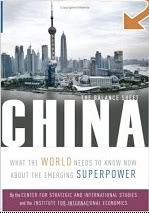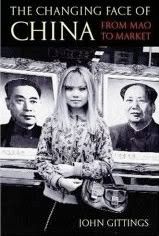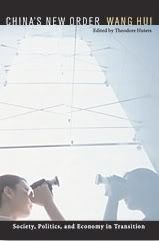Between Politics and Markets: How is China’s Media Evolving?
Wednesday, March 14, 2007
Minxin Pei and Hu Shuli
On March 14, 2007, the Carnegie Endowment hosted the event “Between Politics and Markets: How is China’s Media Evolving” with Hu Shuli, the founder and editor of Caijing Magazine. Carnegie Senior Associate and China Program Director Minxin Pei moderated the event.
Hu Shuli discussed the media in transition, the changes that have been made and the obstacles it still faces. China is in transition from a state-planned economy to a market economy; such a transition requires changes in many other areas, such as the media. Hu believes that the Chinese people demand a free press, but thus far, for various reasons, this has not come to fruition.
Hu Shuli gave many examples of how Caijing has been at the forefront of exposing corruption in China’s business and financial worlds and how such investigative stories have influenced the Chinese government to take steps to prosecute corrupt businessmen and make changes to the system to make such acts more difficult in the future.
During the 1980s, there were a limited number of newspapers that were all state-controlled. Journalists lacked the tools that were necessary to take on the new role that the great changes in reform era China required. In the next phase, in the 1990s, fringe papers sprouted. The business and financial sector requires transparency to attract investment; because of this, journalists emerged to become influential as watchdogs.
Because of these changes in Chinese society, Hu had the opportunity to launch Caijing, with financial sponsorship from in private investors who had formed a think tank on stock market reforms in China. From the beginning, Caijing had editorial independence. Its first edition investigated and published a story about corporate fraud. The magazine was almost banned, but that first edition sold all of its 50,000 copies.
Another story that Caijing ran was about government-backed fund management companies, which manipulated the stock market. After the story ran, other media became less reluctant to report on business and finance corruption. The story had a lasting effect on improving market regulations in China. Chinese stock market regulators adopted reforms to address the problems exposed by Caijing’s story. The magazine also reported on a company, Yin Guangxia, which had reported false revenues. Within 10 hours after Caijing published this story, the government suspended Yin Guangxia’s stock; courts sentenced its President and accountants to prison terms. The story even compelled the government to push new legislation about lawsuits.
Another story run was about the former chairman of the China Construction Bank, Zhang Enzhao. Zhang resigned, citing personal reasons. However, Caijing exposed the truth; a U.S. civil suit was brought against Zhang for corruption. In this story, the Chinese press cooperated with other international news agencies; this signaled to the rest of the world great progress in the Chinese news media.
With these stories came many changes in the media. Bad news was no longer taboo-issues like natural disasters and embezzlement stories were fair game. For example, Caijing covered both SARS and Avian Flu stories.
Caijing has not only been successful editorially, but also financially. This has encouraged investment in the media industry in general, causing the number of non-official financial media to increase substantially since 2000. The Chinese media is working hard to try to match the quality of their international counterparts; they also understand their role as watchdogs.
Major challenges remain for the media because of institutional problems. For example, the media still faces pressure and interference from the government. This interference is not because of ideology, but more because of personal relationships between the government and businessmen. Furthermore, there are few mechanisms to protect Chinese journalists. Chinese media also faces commercial challenges; accuracy remains a serious problem. The commercial pressure has at times undermined the professional integrity of journalists, causing them to mislead (even if accidentally) their readers.
Hu is optimistic about the media’s role as a public watchdog. The public is becoming more and more used to non-official journalism and has started to insist on knowing what is happening in their communities.
During the question and answer session, Hu Shuli addressed the issue of journalists blackmailing companies to get money for not exposing their corruption. Hu also explained how businessmen with connections could attempt to prevent negative stories about them through their official connections. She described how independent media and Internet emerged around the same time; they have mutually reinforced one another. Caijing tries to hire journalists that share the same values. Caijing also has a very strict fact checking system; the journalists need to identify their sources to the magazine (though not publicly) and must also have printed sources. Hu believes that Caijing does have an impact on a cleaner investment environment in China and helps to pave the way to a freer press in general.***
This summary was prepared by Oriana Skylar Mastro, Junior Fellow in the China Program at the Carnegie Endowment for International Peace.
Link




0 Comments:
Post a Comment
Subscribe to Post Comments [Atom]
<< Home